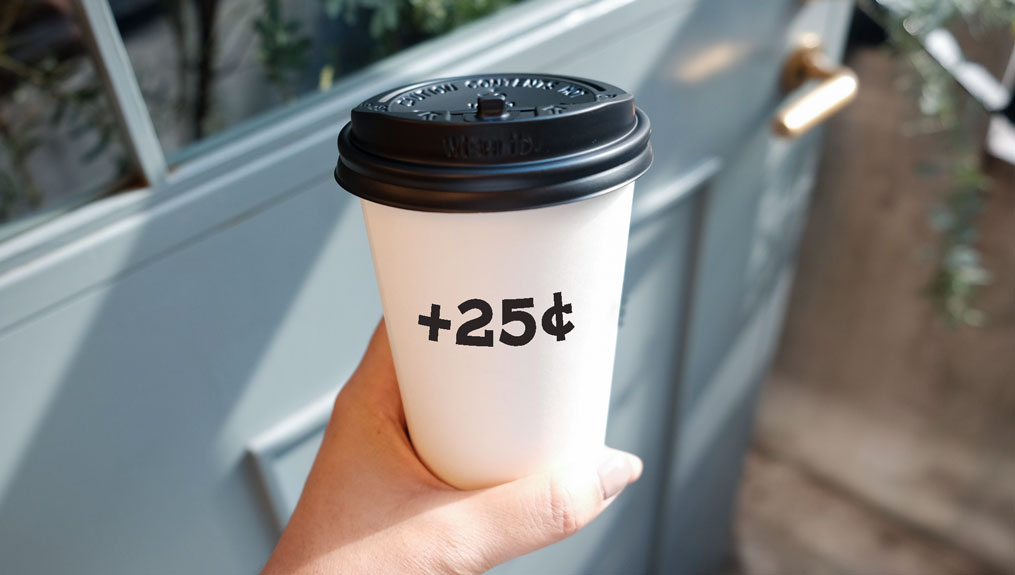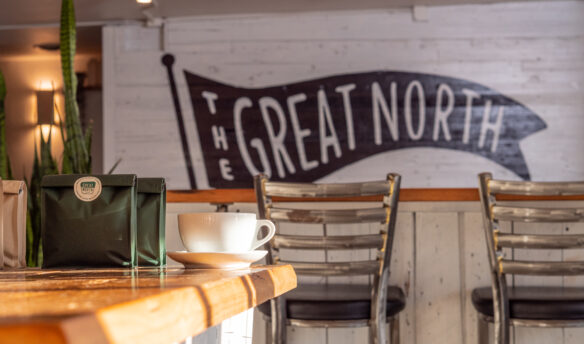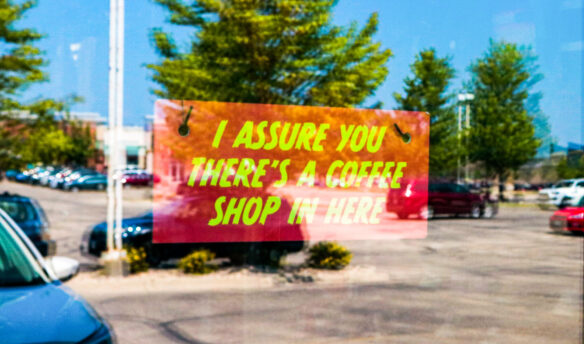BERKELEY—In late January, the Berkeley City Council passed a new ordinance that will result in a 25-cent fee for disposable cups, beginning in January 2020.
Known as the Disposable-Free Dining Ordinance, the city’s new law will be rolled out in phases over the coming months. The first step, already now in place, requires restaurants and cafés to make fully disposable compostable straws, napkins, and utensils available at self-service customer stations, rather than providing them automatically.
Then, in January 2020, restaurants will be required to use to-go ware that is fully compostable, and food and beverage vendors will be required to charge 25 cents for a disposable cup. Finally, beginning in July 2020, food vendors must serve their eat-in customers using only reusable dine-in ware.
The law has already gained attention as one of the most ambitious municipal environmental regulations enacted so far in the country, with most focusing their early opinions on the pros and cons of the coming disposable cup fee.
The goal of that part of the ordinance, of course, is to incentivize customers to bring their own, reusable cups.
“One thing that people have misunderstood is that it’s not a tax,” Councilwoman Sophie Hahn, the author on the ordinance, tells Fresh Cup. “It doesn’t mean that the total cost of the beverage has to go up. If you have a vendor that’s currently charging $3 for a beverage, they could either handle it by saying, ‘Okay, we’re going to charge another 25 cents for the cup, and so it’s now $3.25,’ or they could say that the liquid is now $2.75 and the total cost of the beverage is still $3. The point is that the customer has to see that they are being affirmatively charged 25 cents for the cup.”
Hahn explains that in working with dozens of environmental advocacy groups in drafting the ordinance, including Greenpeace, the Surfrider Foundation, ReThink Disposable, and more, their research suggested that charging a fee for using disposable cups actually proved more effective in incentivizing people to bring their own cups, when compared to the alternative approach of offering a discount for bringing reusable ware.
Moreover, says Hahn, their research suggested that 25 cents per cup was the minimum fee necessary to encourage the desired behavior.
“My environmental advocacy colleagues said that studies have shown that it’s got to be 25 cents. Ten cents is not enough,” she says. “And they asked me to please hold firm that it had to be a charge and not a discount.”
At Berkeley’s Artís Coffee, assistant manager Analyssa Cruz says her café already uses compostable to-go cups, lids, napkins, and straws, and currently offers a discount to customers who bring in their own cups.
When the disposable cup fee goes into effect next January, Cruz doesn’t anticipate a huge pushback from local residents, given Berkeley’s reputation for being an environmentally progressive city. But she does worry about visitors’ reactions.
“I would say with most of our local, regular customers, it won’t be as big of a shock,” she says. “But we’re on a street with lots of shopping, and on the weekends, we do have an increased amount of visitors, with new faces coming in and more disposable ware going out, and I expect we might get questions [about the fee].”
However, Ayal Amzel, owner of Yali’s Café, a certified Bay Area Green Business, which touts itself as one of the earliest in Berkeley to use 100 percent compostable to-go ware, feels that the fee may reach too far.
“The truth of the matter is that most restaurants in Berkeley are already using compostable serviceware and have been for years,” says Amzel, “and all of a sudden to ask customers to pay for that feels redundant.”
Amzel also worries that the additive effects of various recent ordinances, including a sugar tax, increased minimum wage, and now the cup fee, will increase the price of food and beverages to the point that Berkeley customers will simply start buying less.
“I’m right by the university. So if I used to have customers come in five days a week, three times a day to get a latte, they may now buy less pastries, cheaper drinks, or only come once a day,” says Amzel. “These are people I’ve been serving since 1999. They tell me the costs are [becoming] too high.”
Hahn hopes that after the newness of the ordinance wanes, citizens will see its environmental merits.
“We met with local restaurant associations during drafting of the ordinance, and we engaged in a conversation [with them],” she says. “They are our partners. We want it to work for them and be successful.
“We think this will go a long way toward getting our city the rest of the way toward our zero-waste goal, where we’re trying to divert all trash out of our landfills by 2020,” adds Hahn.
Looking ahead, she hopes that Berkeley can serve as a model for the rest of the country—especially in terms of creating an entirely new niche of reusable to-go ware, which currently doesn’t exist in the marketplace.
“The last piece of this is that we want to develop a reusable to-go ware program for the whole city in three years,” says Hahn. “We don’t know what’s it’s going to look like yet, but we have challenged our [city] staff to make it happen.”
Lexington, Kentucky-based freelance writer Robin Roenker has extensive experience reporting on business trends, from cybersecurity to real estate, personal finance, and green living. For Fresh Cup, she covers sustainable and eco-friendly trends in cafés in her column, The Last Plastic Straw.







